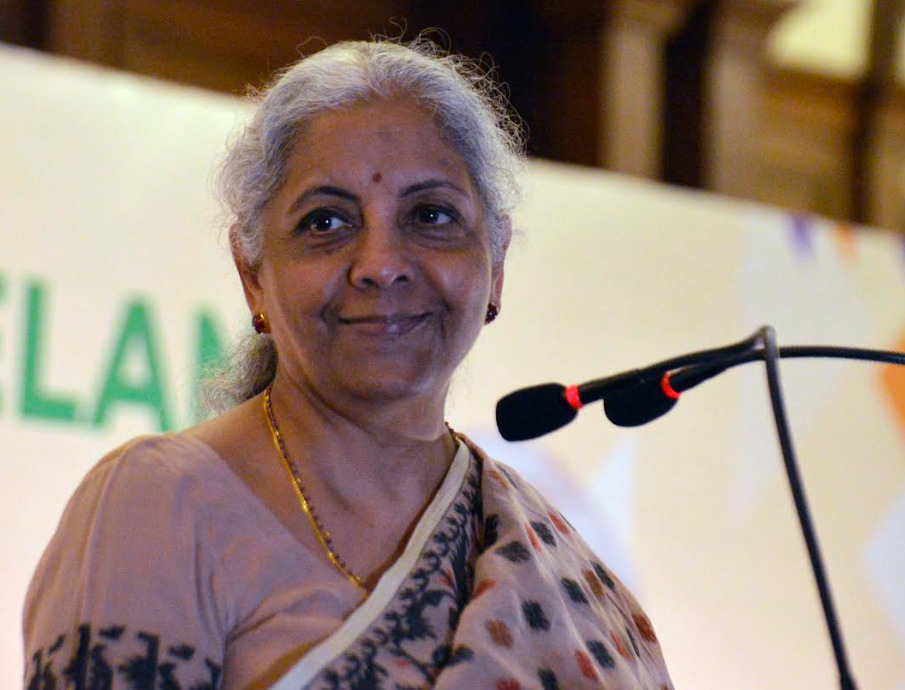NEW DELHI: Finance Minister Nirmala Sitharaman on Saturday underlined the Government’s support to States through timely tax devolution, Finance Commission grants, and arrears of GST compensation being provided for providing stimulus to growth.
Chairing the pre-budget consultations with the Finance Ministers of States and Union Territories (with legislature) for taking suggestions for Union Budget 2024-25, the Minister thanked all the delegates for their inputs and suggestions and assured them of due consideration during the preparation of the Budget 2024-25.
Most Ministers appreciated the Government’s ‘Scheme for Special Assistance to States for Capital Investment’ and gave suggestions for further improvement. Sitharaman responded that while most of the loans are untied, a part of it is conditional-linked to citizen-centric reforms by states and sector-specific capital projects and requested the states to avail these loans by fulfilling requisite criteria. The participants also gave suggestions to the Finance Minister for inclusion in the Budget for FY 2024-25, along with some state-specific requests. According to ICRA Ratings, five states and one Union Territory (UT) raised Rs 95 billion through the state government securities (SGS) on 18 June, 2024, nearly 41 per cent below the indicated amount for this week. A likely cause could be the step-up in tax devolution in June 2024 from April-May 2024, which may have reduced their borrowing requirement.
An India Ratings and Research (Ind-Ra) report says that while India’s growth momentum lately has catapulted it to the fastest-growing major economy of the world in 2023-2024, continuation of the ongoing momentum requires active support of state governments. In India, state governments hold more primacy as most of the developmental expenditure (about 70 per cent of the general government’s developmental expenditure) is incurred by them. During FY18-FY23, India’s GDP growth averaged at 4.7 per cent. The growth pattern at the sub-national level in this period, however, was quite varied with 16 out of 28 states witnessing higher growth than the national level. Mizoram (7.2 per cent), Gujarat (7.1 per cent), Assam (6.9 per cent), Sikkim (6.3 per cent), Arunachal Pradesh and Karnataka (6.1 per cent each) were the fastest-growing states during FY18-FY23. Likewise, Manipur, Meghalaya, Goa, Maharashtra, Uttarakhand, and Nagaland were the states whose GSDP (gross state domestic product) growth lagged the national average. “The GSDP growth for these states ranged between 2.62 per cent – 3.4 2 per cent during. FY18-FY23,” says Paras Jasrai, Senior Analyst, Ind-Ra. According to Jasrai, Kerala, West Bengal, Haryana, Uttar Pradesh, and Punjab were some of the other states whose GSDP growth rate was lower than the national average.
The fiscal health determines a state’s ability to support their respective economies. This ultimately gets reflected in the fiscal deficits and debt. During FY19-FY23RE, the median fiscal deficit for all states stood at 3.5 per cent of GSDP. Only 10 states had their fiscal deficit lower than the median of all states. Odisha, Gujarat, Maharashtra, Uttar Pradesh, and Jharkhand were the states whose fiscal deficit ranged between 1.4 per cent-2.5 per cent of GDP during FY19-FY23 RE.
Bihar, Rajasthan, and Assam had their fiscal deficit more than 4.3% of GDP. The median debt burden of the states in aggregate stood at 31.8 per cent of GDP in FY23RE. This is lower than the indicative debt path of the 15th Finance Commission and suggests fiscal consolidation during FY22-FY23. With proactive support from the union government in the form of early tax transfers and long-term interest free loans, states are now better placed to enhance expenditure on capital assets, according to Sunil Kumar Sinha, Senior Director, Ind-Ra.

